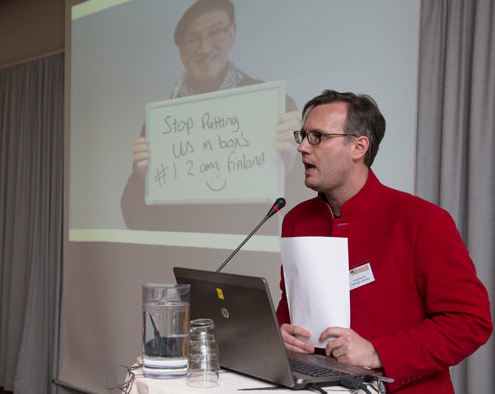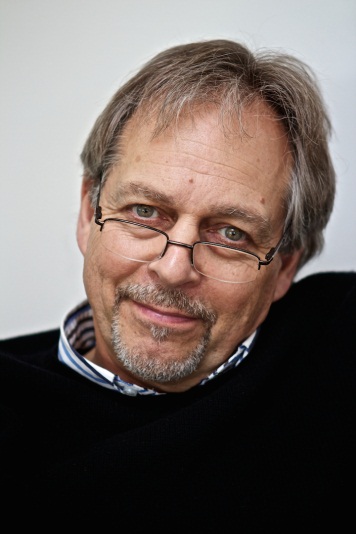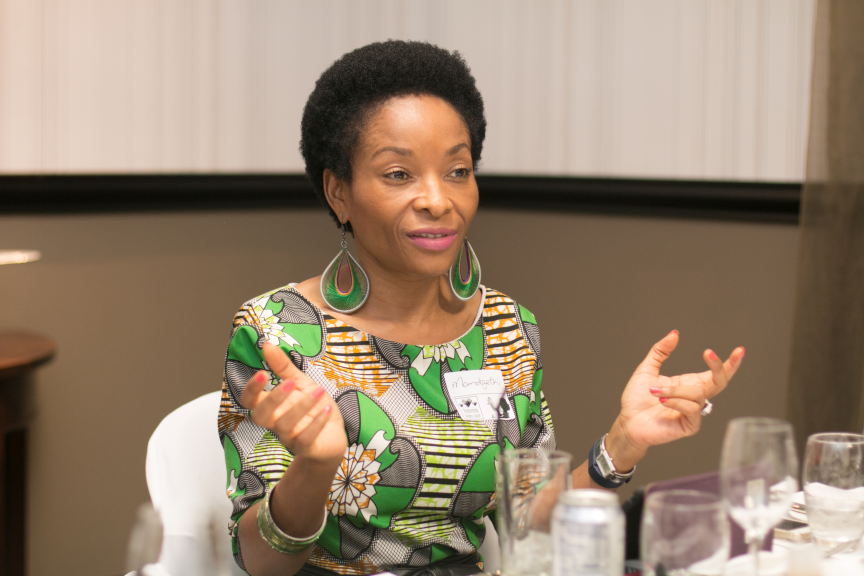(in alphabetical order)
Fred Dervin, University of Helsinki (Finland)
Simplexifying Education? Towards realistic diversification
 Fred Dervin is Professor of Multicultural Education at the University of Helsinki (Finland). Dervin also holds professorships in Canada, Luxembourg and Malaysia. Prof. Dervin specializes in intercultural education, the sociology of multiculturalism and student and academic mobility. He has published over 30 books and he is the series editor of Education beyond borders (Peter Lang), Nordic Studies on Diversity in Education (with Kulbrandstad and Ragnarsdóttir; CSP) and Post-intercultural communication and education (CSP).
Fred Dervin is Professor of Multicultural Education at the University of Helsinki (Finland). Dervin also holds professorships in Canada, Luxembourg and Malaysia. Prof. Dervin specializes in intercultural education, the sociology of multiculturalism and student and academic mobility. He has published over 30 books and he is the series editor of Education beyond borders (Peter Lang), Nordic Studies on Diversity in Education (with Kulbrandstad and Ragnarsdóttir; CSP) and Post-intercultural communication and education (CSP).
Publications:
1. Linguistics for Intercultural Education (co-edited with Tony Liddicoat, New York: Benjamins, 2013)
2. Reflexivity in Language and Intercultural Education. Rethinking Multilingualism and Interculturality (eds. Byrd Clark/Dervin, Routledge, 2014)
David Lambert, University College London Institute of Education (UK)
Powerful Disciplinary Knowledge: Teachers as Curriculum Makers
 David Lambert is Professor of Geography Education at University College London Institute of Education (UCL-IOE). His background is that of a former secondary school teacher and teacher educator. He also spent ten years as chief executive of the Geographical Association, an independent ‘subject association’ with over 6000 members. His writing and research has encompassed themes in curriculum, pedagogy and assessment. The overarching goal of his current work is to advance understanding of the role of geography in schools in relation to broad educational purposes, not least its role in helping young people grasp the significance of the Anthropocene.
David Lambert is Professor of Geography Education at University College London Institute of Education (UCL-IOE). His background is that of a former secondary school teacher and teacher educator. He also spent ten years as chief executive of the Geographical Association, an independent ‘subject association’ with over 6000 members. His writing and research has encompassed themes in curriculum, pedagogy and assessment. The overarching goal of his current work is to advance understanding of the role of geography in schools in relation to broad educational purposes, not least its role in helping young people grasp the significance of the Anthropocene.
Publications:
1. Lambert, D. & Morgan, J. (2010) Teaching Geography 11–18: A Conceptual
Approach. Open University Press, Maidenhead.
2. Young, M., Lambert, D., Roberts, C. & Roberts, M. (2014) Knowledge and
the Future School: Curriculum and Social Justice. Bloomsbury Academic,
London.
Kenneth Nordgren, Karlstad University / CeHum Stockholm University (Sweden)
Intercultural education from process to product: Is there a reasonable diversity?
 Kenneth Nordgren is a senior lecturer in History at Karlstad University and a guest researcher at CeHum Stockholm University. His main research interest is history teaching in the multicultural society, the uses of history and migration history. I is involved in the research project History teaching processes in the multicultural society (Swedish research council). The project tries to develop both theoretical and methodological knowledge about what intercultural competence could be within history as a school subject.
Kenneth Nordgren is a senior lecturer in History at Karlstad University and a guest researcher at CeHum Stockholm University. His main research interest is history teaching in the multicultural society, the uses of history and migration history. I is involved in the research project History teaching processes in the multicultural society (Swedish research council). The project tries to develop both theoretical and methodological knowledge about what intercultural competence could be within history as a school subject.
Publications:
1. Nordgren, K., & Johansson, M. (2014). Intercultural historical learning: A conceptual framework. Journal of Curriculum Studies, 1-25.
2. Nordgren, K., (2011) Historical consciousness and September 11 2001. In Nordgren, K., Eliasson, P., & Rönnqvist, C. (eds), The Processes of History Teaching, (Karlstad University Press).
Mamokgethi Phakeng, University of South Africa, Pretoria (South Africa)
Mathematics education and language diversity: from understanding ‘what is’ to exploring ‘what could be’
 Mamokgethi Phakeng is full professor and Vice Principal of Research and Innovation at the University of South Africa. She has served as National President of the Association for Mathematics Education of South Africa (AMESA) from 2002 to 2006. She served as co-chair of the International Comission on Mathematics Instruction (ICMI) Study 21 entitled, “Mathematics education and language diversity”. Kgethi, as she is popularly known has won several awards for her research and community work, the latest being the 2014 Most Influential Woman in Academia in Africa.
Mamokgethi Phakeng is full professor and Vice Principal of Research and Innovation at the University of South Africa. She has served as National President of the Association for Mathematics Education of South Africa (AMESA) from 2002 to 2006. She served as co-chair of the International Comission on Mathematics Instruction (ICMI) Study 21 entitled, “Mathematics education and language diversity”. Kgethi, as she is popularly known has won several awards for her research and community work, the latest being the 2014 Most Influential Woman in Academia in Africa.
Publications:
1. Setati, M. (2005). Teaching mathematics in a primary multilingual classroom. Journal for Research in Mathematics Education. 36(5) pp. 447 – 466
2. Setati, M. (2012) Mathematics in multilingual classrooms in South Africa: from understanding the problem to exploring possible solutions. In Beth Herbel- Eisenmann, Jeffrey Choppin, David Wagner (Eds.) Equity in Discourse for Mathematics Education: Theories, Practices and Policies. Springer. Pp 125-145
